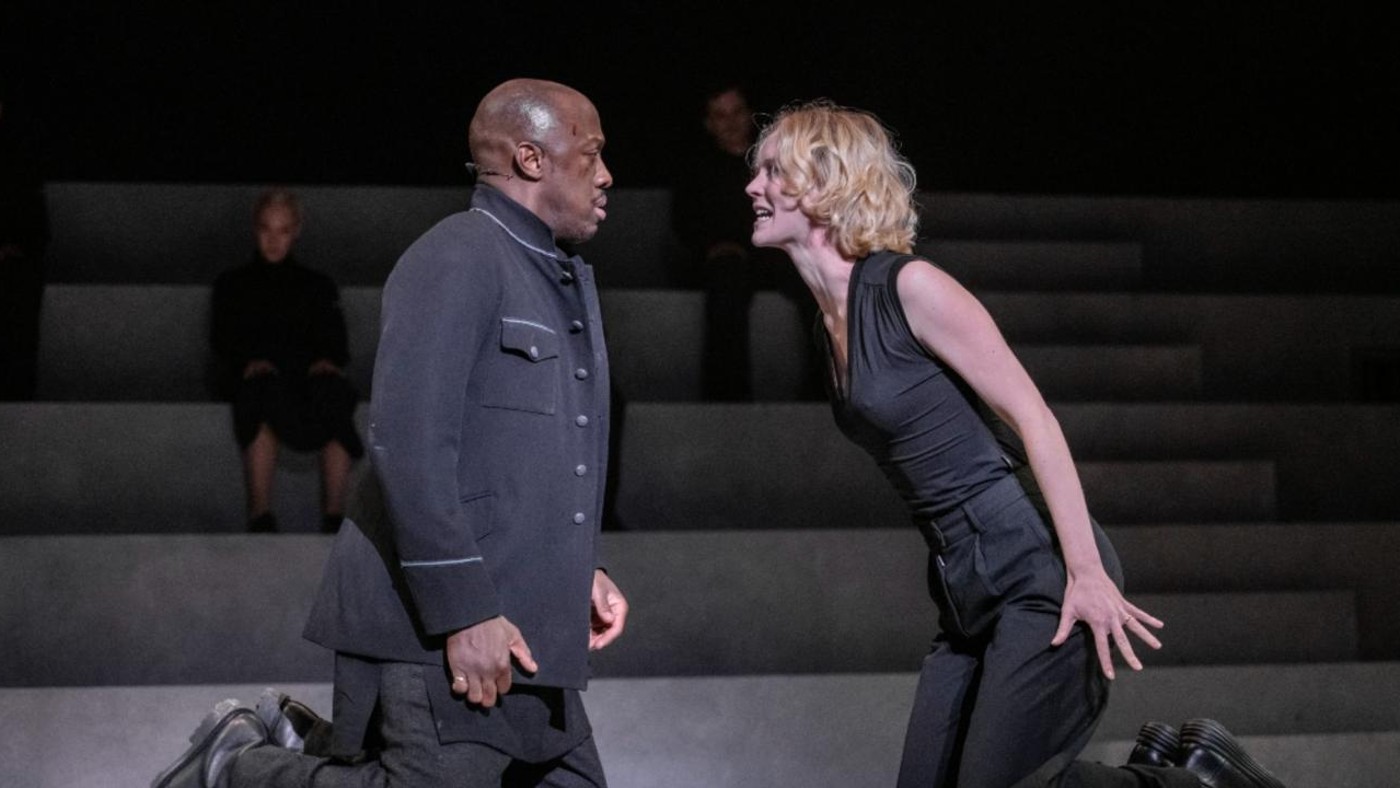Othello at the National Theatre review: a ‘sensational’ production
Clint Dyer has become the first black director to stage Othello at a major British theatre

A free daily email with the biggest news stories of the day – and the best features from TheWeek.com
You are now subscribed
Your newsletter sign-up was successful
As a teenager, Clint Dyer visited the National Theatre and was so shocked to see a photograph of Laurence Olivier “blacked up” in the foyer, he took out a pen and scrawled “Shame on you” on it. Now Dyer is the National’s deputy artistic director, said Nick Curtis in the London Evening Standard, and has become the first black director to stage Othello at a major British theatre.
It is a “sensational” production, said Sarah Crompton on What’s on Stage, confidently directed and beautifully acted, in which the tension is “ratcheted up to breaking point as every moment passes”. We are presented with a society “riven not only by racism and fear of the outsider”, but by such a “hatred and distrust of women” that “no one believes them or listens when they speak”.
In one striking innovation, Dyer puts a white-dominated chorus on stage for much of the action, said Dominic Cavendish in The Daily Telegraph. Becoming a “stylised motif of systemic power”, this mob assumes “shades of a torch-wielding witch-hunt” in the Venice scenes; lurks voyeuristically in the shadows when the action moves to battle in Cyprus; and shifts in “eerie synchronicity” with Paul Hilton’s Iago, a “leering puppet-master” who “barely conceals his daggered looks”.
The Week
Escape your echo chamber. Get the facts behind the news, plus analysis from multiple perspectives.

Sign up for The Week's Free Newsletters
From our morning news briefing to a weekly Good News Newsletter, get the best of The Week delivered directly to your inbox.
From our morning news briefing to a weekly Good News Newsletter, get the best of The Week delivered directly to your inbox.
Hilton is “devilishly hypnotic”, whereas Giles Terera as Othello “gives us muscularity and measured intelligence”. Both men, though, engage in shocking acts of violence against their womenfolk – “Tanya Franks’s nervously giggling Emilia, and Rosy McEwen’s ravishing, fatally self-possessed Desdemona”.

Strikingly, “the women are not reduced to victims here, while the men, including Othello, are controlling, toxic abusers”, said Arifa Akbar in The Guardian. To find within Othello a second play, about “the tragedy of domestic violence”, seems an obvious interpretation, “yet it makes the play feel utterly new”.
Not everything works. Hilton’s performance struck me as pantomime-y; the thriller tropes – thunder, rain, “jagged sounds” – are “effective but overdone”; and the significance of the chorus is not always clear. But this radical Othello is “highly watchable”.
Lyttelton, National Theatre, London SE1. Until 21 January
A free daily email with the biggest news stories of the day – and the best features from TheWeek.com